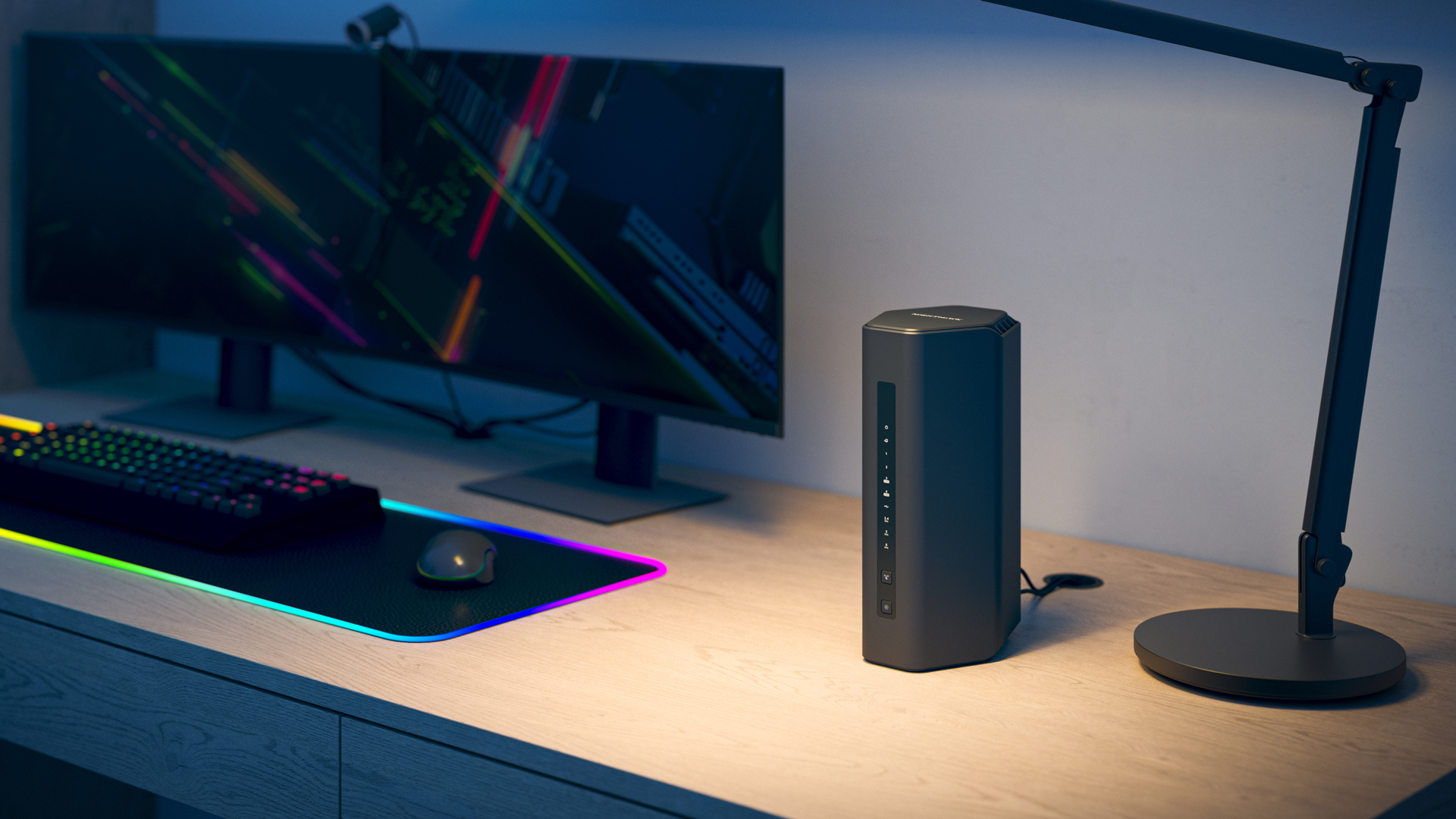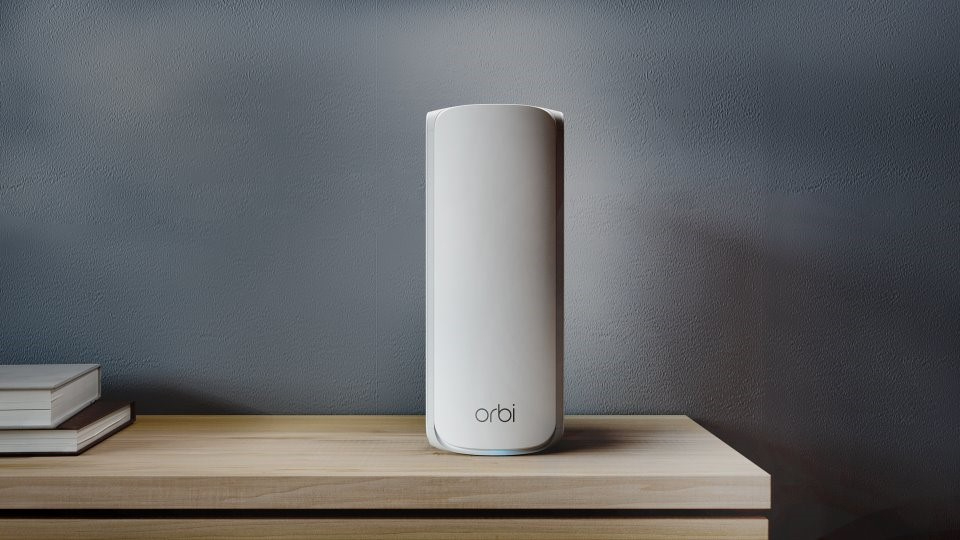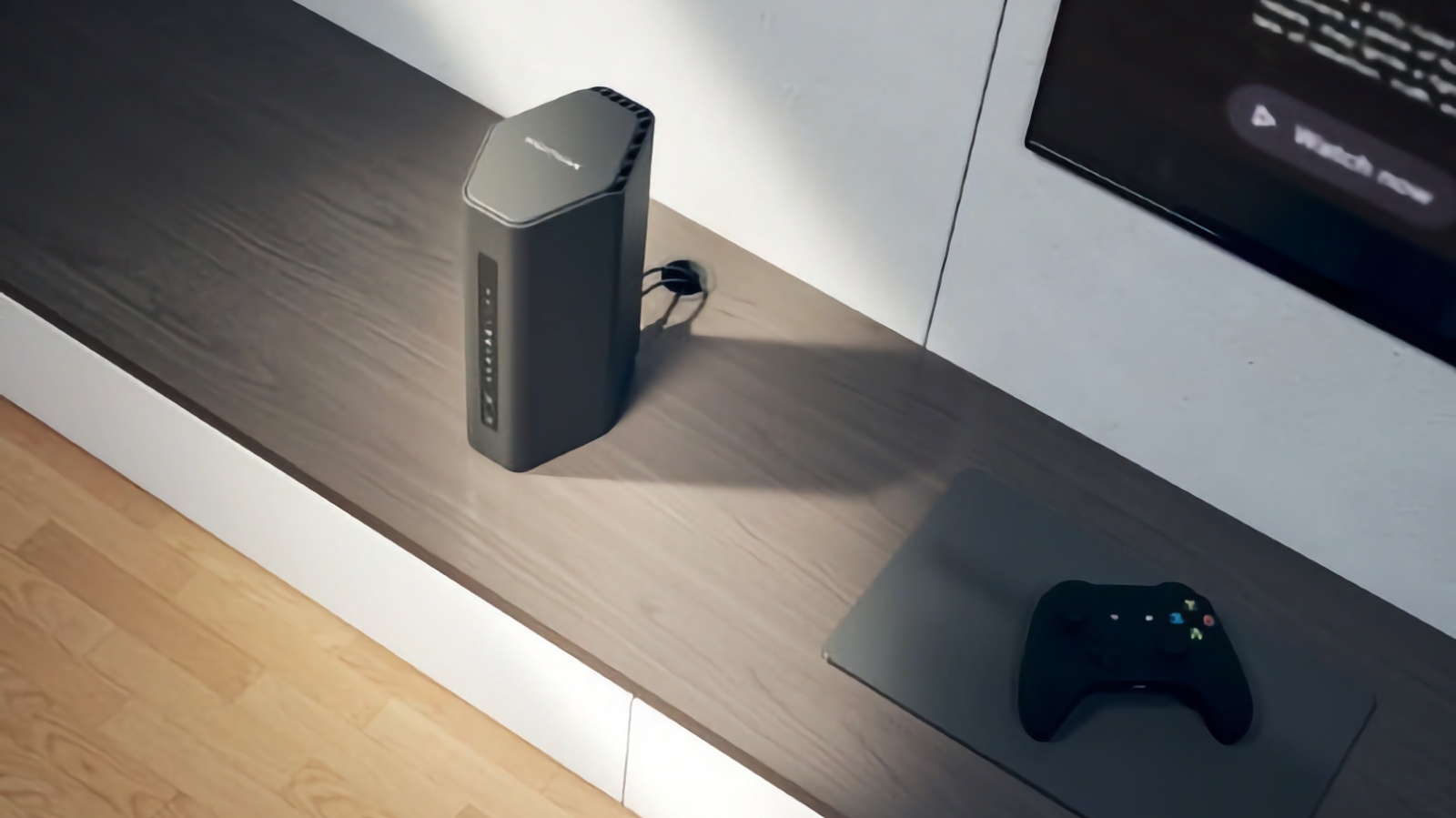Netgear's latest Wi-Fi 7 routers cost less and pack fewer features — but don't call them cheap
Netgear’s latest Wi-Fi 7 routers still aren’t cheap, but represent a much better value than its earlier efforts.

We’ve seen a steady drip of new Wi-Fi 7 routers debut recently, and unfortunately for most people those new devices come with some profound sticker shock. For example, Wi-Fi 7 mesh routers like the Eero Max 7 currently start at $509 for a single node and jump to a staggering $1,445 for a three-pack. Netgear also isn’t a stranger to high-priced Wi-Fi 7 routers, as its Orbi 970 starts at $1,699 for one router and one satellite ($2,299 for one router and two satellites). Its Nighthawk RS700 costs $699.
Netgear needs to appeal to more mainstream customers with cheaper products, hence the arrival of the Orbi 770 and Nighthawk RS300 Wi-Fi 7 routers. The Orbi 770 is a mesh router system, just like the more expensive Orbi 970. However, the specs sheet for the former doesn’t look nearly as impressive, as Netgear had to perform a few nips and tucks to meet a lower price point.
In this case, the Orbi 770 covers 8,250 square feet, down from 10,000 feet on the pricier Orbi 970. It also supports “just” 100 concurrent devices, which is half the number of its overachieving sibling. Feature regression continues, with maximum aggregate speeds of up to 11 Gbps (versus 27 Gbps) and support for tri-band Wi-Fi 7 (instead of quad-band). The Orbi 770 router also only supports up to 500 Mbps internet connections, which is something to keep in mind if you have a 1 Gbps+ fiber connection to your home.

Netgear also pulled back on the physical ports, as you get fewer and slower ports. The Orbi 770 has four 2.5 GbE ports on the router and two 2.5 GbE ports on the satellites. On the other hand, the Orbi 970 adds two 10 GbE to the router and one 10 GbE port to each satellite. One final area where Netgear trimmed costs was by providing a 30-day trial of its Netgear Armor security suite instead of the usual 1-year subscription.
However, all these deletions mean that the Orbi 770 is far cheaper, at just $699 for a router and a satellite. A complete package with one router and two satellites is $999, which is still far below the $1,699 entry price for the Orbi 970. Granted, $699 to start is still a lot of money to pay for a mesh routing system, but it's one of the cheaper entry points for those who want to futureproof their homes with Wi-Fi 7 support.

If you don't need the expansive coverage of a mesh router in your home, you can go with the Nighthawk RS300, the cheaper alternative to the Nighthawk RS700. Like the Orbi 770, the Nighthawk RS300 makes some notable concessions on performance and expansion, trimming maximum coverage from 3,500 square feet to 2,500 square feet and halving maximum aggregate speeds to 9.3 Gbps. You also only get 2.5 GbE ports on the router and no 10 GbE ports. However, Netgear's extreme cost-cutting means that the Nighthawk RS300 costs only $329, compared to $699 for the Nighthawk RS700S.
The Orbi 770 and Nighthawk RS300 are currently available to purchase directly from Netgear's website. Both routers will soon be available from third-party retailers, where street pricing could be slightly lower.
Get Tom's Hardware's best news and in-depth reviews, straight to your inbox.

Brandon Hill is a senior editor at Tom's Hardware. He has written about PC and Mac tech since the late 1990s with bylines at AnandTech, DailyTech, and Hot Hardware. When he is not consuming copious amounts of tech news, he can be found enjoying the NC mountains or the beach with his wife and two sons.
-
das_stig Do the sensible thing, tell manufacturers like Netgear and Asus to go *** with their overpriced underpowered con..sumer trash and build your own. Buy a cheap mini PC (build one or ex-corporate mini desstops of eBay), with multiple 2.5GbE or 10GbE ports, superior low power x64 cpus, standard memory, NVME/SSD storage, install Proxmox/XCP-NG as your bare metal hypervisor and then run Pfsense/Opnsense as your firewall/DHCP, piHole as your spam/advert/nasties filter, Unbound as your DNS server bypassing your ISP and OpenVPN all as virtual machines and finally purchase your own access points that match your speed/bandwith needs and fully configurable, nothing locked out behind paywalls and you also get the benefit of better security and generally superior updates and longer support.Reply
Your general con..sumer router is all of the above but of lower quality, especially the software and yes I am going down this route ! -
Blastomonas For the price of these things i would expect a lifetime subscription to their Armour platform.Reply -
thestryker Reply
The problem with this is that you cannot match the WiFi capability of some (the ones in this article are just poor value period imo) of the consumer routers with anything close to the same price. This is the issue I've been running into which is why I've yet to replace my old router with a newer one. There were some really well balanced perf/$ 6E devices so I'm guessing it's just a matter of time for 7.das_stig said:finally purchase your own access points that match your speed/bandwith needs and fully configurable, nothing locked out behind paywalls and you also get the benefit of better security and generally superior updates and longer support.
That being said I've definitely been on a N5105 based router box for the internet side of things for close to 2 years and wouldn't go back at all. -
bit_user Eh, I'll bite. I think the Nighthawk RS300 is just what I've been waiting for. My old router needs a reboot once a month or so, but otherwise is adequate for my needs. The RS300 should therefore easily last me another 5 years.Reply
I'm just happy finally to be moving up to 2.5 Gbps. I'm glad it has 2.5 GBase-T ports on both WAN and LAN sides, which is one of the things I wanted, since my cable modem now has 2.5 Gig and I never liked the idea of teaming on the LAN side.
Price-wise, it's in the ballpark of what I paid for my current WiFi router and there's no way I'd consider saving a couple bucks to get a Chinese router. -
bit_user Reply
Fine, if you want to.das_stig said:build your own.
Who cares? For a router, "standard memory" and fast storage shouldn't matter.das_stig said:standard memory, NVME/SSD storage,
On my LAN, everywhere that I need rock-solid service and top speeds is hard-wired. For Internet, I doubt routers have ever been much of a bottleneck, for me. In terms of wifi, my devices tend to be older than my routers, so probably don't even max them out.das_stig said:finally purchase your own access points that match your speed/bandwith needs -
thestryker Reply
TP-Link has been selling the BE550 for ~8mo or so which is pretty much the same thing but with all 2.5gbps ports and is cheaper (there's a more cut down one the BE9300 with only 2x 2.5gbps ports but I think it might be a retailer exclusive). If it had more 5 GHz bandwidth I'd have probably bought it so I continue to wait for one that does while costing a lot closer to $300 than the current crop.bit_user said:Eh, I'll bite. I think the Nighthawk RS300 is just what I've been waiting for. My old router needs a reboot once a month or so, but otherwise is adequate for my needs. The RS300 should therefore easily last me another 5 years. -
bit_user Reply
Nope. I won't use any Chinese networking gear, other than possibly unmanaged switches.thestryker said:TP-Link ... -
thestryker Reply
You're aware that they're not based in China anymore and their equipment is built with the exact same parts as everything else on the market right?bit_user said:Nope. I won't use any Chinese networking gear, other than possibly unmanaged switches.
They wanted to avoid Huawei's fate from how it appeared to play out.
edit: I can't say it's true for everything, but the last switch and powerline adapters I got from them weren't even made in China, but rather Vietnam (aka the same as Netgear). -
bit_user Reply
Not sure about the parts; don't care if their official HQ is in Singapore, either. I'll stick with Netgear.thestryker said:You're aware that they're not based in China anymore and their equipment is built with the exact same parts as everything else on the market right?
Last year, I got a Netgear cable modem and this router will go with it, nicely. -
thestryker Reply
There's nothing wrong with that, but I'm simply pointing out that TP-Link is no more "China" than Netgear is.bit_user said:Not sure about the parts; don't care if their official HQ is in Singapore, either. I'll stick with Netgear.
Last year, I got a Netgear cable modem and this router will go with it, nicely.